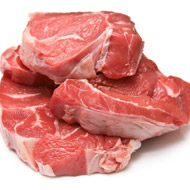
The raw feeding debate continues at BSAVA Congress
In recent years the raw food diet has received a great deal of attention from owners and industry experts. Advocates say that a raw diet is more 'natural' for dogs and can be prepared to meet their specific nutritional needs. But critics argue that raw food diets create nutritional deficiencies because they are both difficult and time consuming to manage.
Kicking off the big issues stream at BSAVA Congress earlier this month, two opposing teams spoke for and against raw pet food, with input from the floor. On the pro-team was Jonathan Self, author and co-founder of Honey’s Real Pet Food, and first opinion practitioner Brendan Clarke. Opposing the pro-team was Mike Davies, associate professor in small animal clinical practice at the University of Nottingham.
To read the full article visit vetcommunity.com.



 The veterinary mental health charity Vetlife is inviting the veterinary community to join it for a sponsored cold-water dip.
The veterinary mental health charity Vetlife is inviting the veterinary community to join it for a sponsored cold-water dip.